The Soul of the City:
300 Years of Musical Diversity:
Tuesdays, February 20 – March 27, 2018
6:30 p. m., St. Mary’s Chapel
Ursuline Convent, 1100 Chartres St.
The Faulkner Society’s annual series of six free, public concerts held weekly as a musical prelude to Easter, during Lent was originally created in collaboration with the Rev. William F. Maestri, a much-loved priest of the Archdiocese of New Orleans and Director of the Bishop Perry Center, a mission for the disadvantaged. The original concept was to secure advance underwriting to offset the expenses of the series and then offer the concerts free so that the healing and emotionally uplifting power of music would be available financially disadvantaged, so that those without the wherewithal to buy expensive concert tickets could participate in the joy of good music. After Father Maestri retired, the Center was closed and its services folded into the already impressive services offered by St. Jude Community Center, 400 N. Rampart Street, directed by the dynamic Sister Beth Mouch. The Faulkner Society determined to continue producing the concerts annually to benefit the poor. While the concerts are offered free, completely voluntary collections are taken at the end of each concert to benefit the poor, with the collections this year going to St. Jude Community Center. St. Jude is especially needy this year, as the flooding caused by Sewerage & Water Board incompetence, resulted in much damage to the Center and the necessity of major renovation expense. So the Society is requesting that those with resources attending the concerts be generous when the basket is passed.
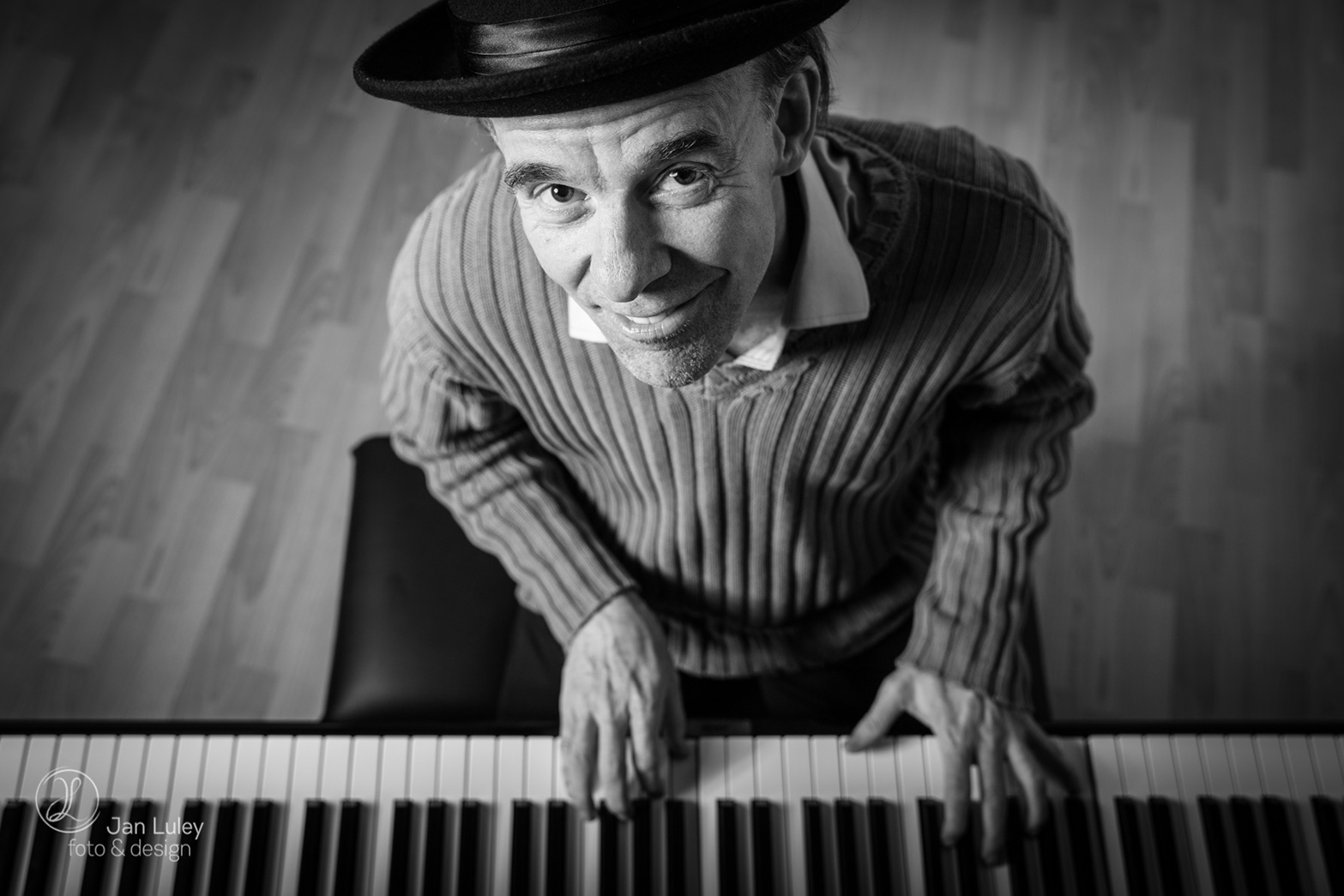
Concert One: Tom McDermott
The 2018 series opened on February 20 with an electrifying performance by the superbly talented pianist Tom McDermott, who can play everything from Bamboula to Boogie in his own inimitable style, and explained the origin of each piece of music and how much of New Orleans music originated with the great 19th century classical composer and pianist of New Orleans, Louis Moreau Gottschalk, whose music in turn was heavily influenced by the Caribbean rhythms of Congo Square. Historical context remarks were provided noted historian Nancy Dixon, Ph.D., Executive editor of the new Tricentennial anthology just released by the Louisiana Endowment for the Humanities, New Orleans, New Orleans and the World: 1718 – 2018. The Society is offering the book for sale at the concerts and Dr. Dixon signed at the opening event.
Concert Two: OperaCréole
The second concert featuring OperaCréole was equally uplifting musically and edifying, with remarks about the history of the 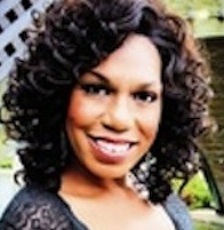 music by Aria Mason, Co-Founder and Artistic Director of OperaCréole punctuating the performance of the musical selections with running commentary on the place of these selections in the cultural history of New Orleans. Most of the pieces performed had their origin in love of music by all ethnicities in 19th Century New Orleans and the fact that in New Orleans Creole society music was common ground, frequently unifying black Creoles and white Creoles. Their presentation for the evening was offered as a tribute to: François-Michel Samuel Snaër (ca. 1832-1880s), an important free Creole composer of color, who was Choir Master and Organist at St. Mary’s Church in the 19th Century. Mr. Snaër conducted the first New
music by Aria Mason, Co-Founder and Artistic Director of OperaCréole punctuating the performance of the musical selections with running commentary on the place of these selections in the cultural history of New Orleans. Most of the pieces performed had their origin in love of music by all ethnicities in 19th Century New Orleans and the fact that in New Orleans Creole society music was common ground, frequently unifying black Creoles and white Creoles. Their presentation for the evening was offered as a tribute to: François-Michel Samuel Snaër (ca. 1832-1880s), an important free Creole composer of color, who was Choir Master and Organist at St. Mary’s Church in the 19th Century. Mr. Snaër conducted the first New  Orleans performance of Quasimodo Symphony, composed by Edmond Dédé, another important free Creole composer of color. The performance took place on May 10, 1865, before an audience of prominent African
Orleans performance of Quasimodo Symphony, composed by Edmond Dédé, another important free Creole composer of color. The performance took place on May 10, 1865, before an audience of prominent African 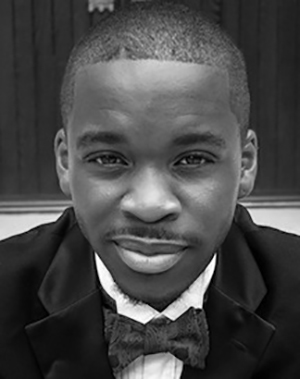 American and white citizens.
American and white citizens.
Performing artists for this event included Ms. Mason, along with Kenya Lawrence Jackson, resident soprano of OperaCréole, sang the Title role in Treemonisha. She also helped OperaCréole make history in the title role of Flamenca in La Flamenca; along with Prentiss Mouton, the company’s new resident tenor, who debuted as Remus in Treemonisha. The 2015 winner of the national George Shirley Competition, he spent last summer, 2017 performing in Italy, and will graduate in August from Louisiana State University with a degree in Vocal Music Performance.
Concert Three: The Roots of Music
The third concert on Tuesday, March 6, was a dual benefit, featuring, The Roots of Music, directed by band leader Darren Rodgers, a remarkable performance by talented youngsters
learning their music in a remarkable after-school program which mentors middle school
students from low-income families, with trained tutors helping them with reading, writing, and their homework, and some of the city’s best musicians teaching them music and art of marching band performance.
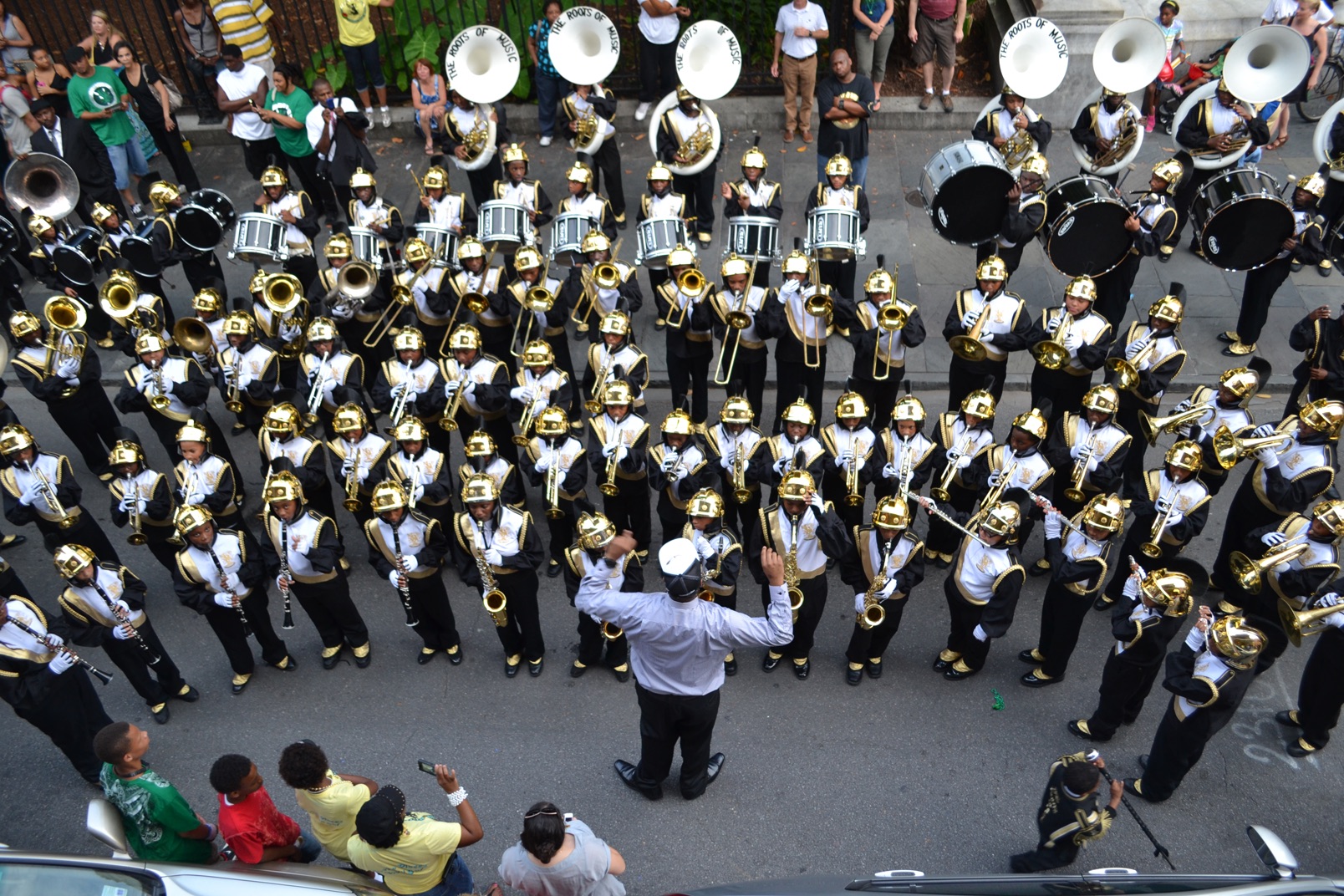
The Roots of Music founders, board, and staff believe music has the power to transform lives. The program provides music history and theory as well as instrumental instruction and ensemble performance preparation. The students are provided with hot meals and round-trip transportation to eliminate the most common barriers to participation. Band Director Darren Rodgers, left, is a veteran of the famous St. Augustine Marching 100 and the prestigious Tornado Marching Band of his alma mater, Talladega College. Five days a week, 12 months a year, the program delivers over 2,500 hours of music education and other academic tutoring, over 30,400 nutritious hot meals, 1,400 bus journeys, and more than 150 instruments for student use. The Faulkner Society has a history with Roots of Music. During our 2012 BIG READ literacy initiative honoring Louisiana literary Master Ernest Gaines, the Society distributed free copies of his famous novel,A Lesson Before Dying, our focus book for that year, to Roots of Music students and presented a program on the importance of reading to success in life.
This March 6 program was introduced by David Kunian, Curator of the Louisiana State Museum’s jazz archives and its Jazz Museum at the old U. S. Mint, shown here at right. David discussed the origins of brass and the “Spanish/Latin Tinge” of New Orleans music. The program was a double benefit event for The Roots of Music and St. Jude Community Center.
Concert Four: Chamber Music and Old Favorites
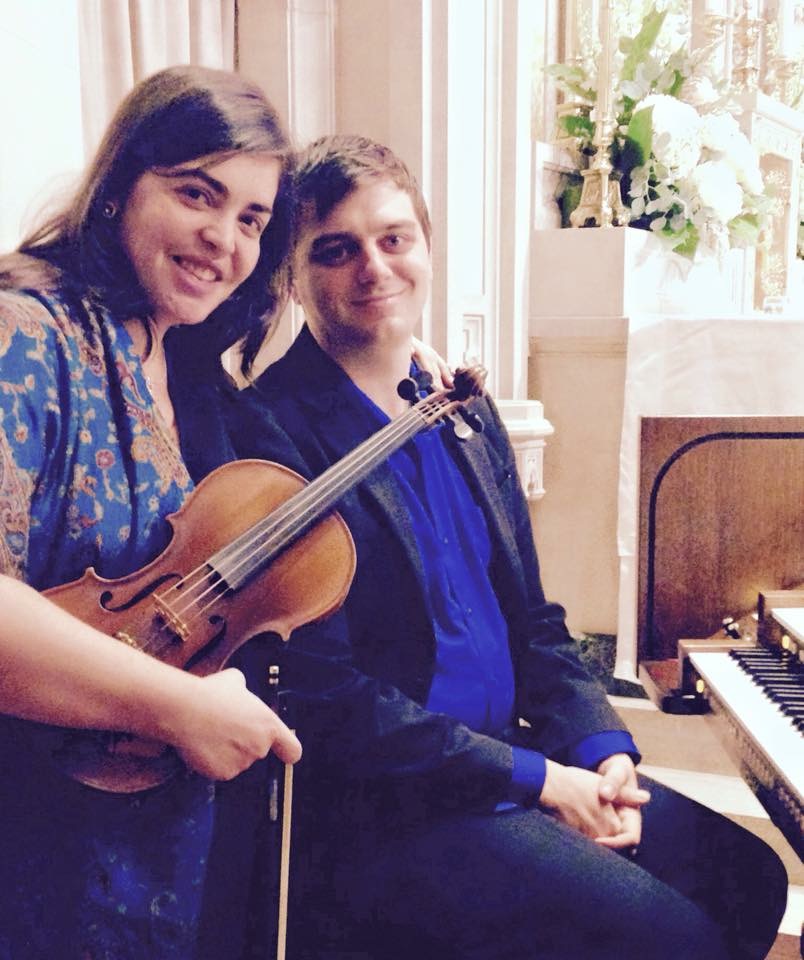 The fourth concert, a trip down memory lane, was a big hit with the audience, as soprano Sarah Jane McMahon,
The fourth concert, a trip down memory lane, was a big hit with the audience, as soprano Sarah Jane McMahon, 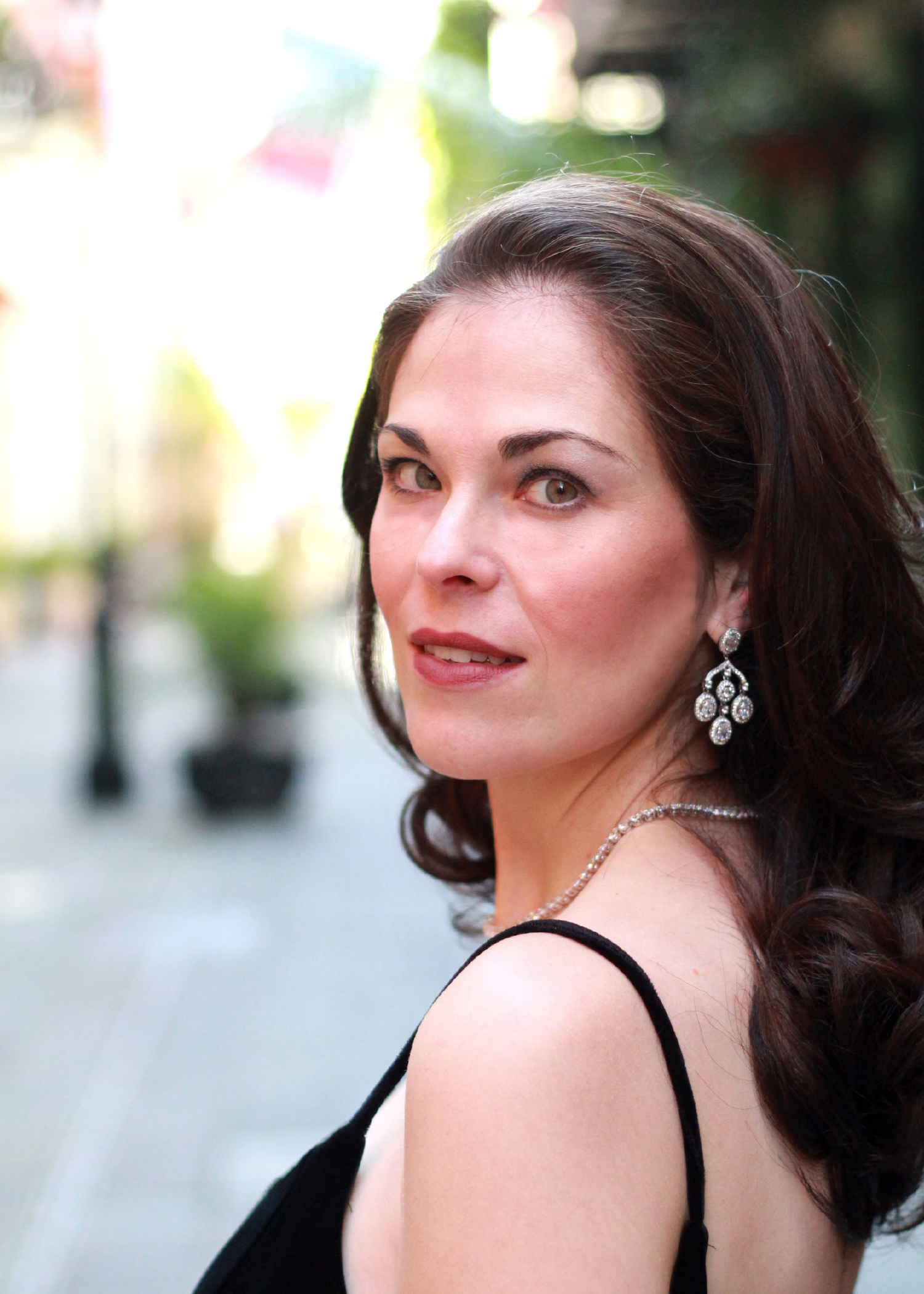 pianist Jesse Reeks, and violinist Lulu Reeks pushed all of the right emotional buttons with their Tricentennial-oriented program of chamber music and old favorites, emphasizing especially the French, Spanish, and Irish heritage of New Orleans, along with spiritual music, and a final audience sing-along piece of You Are My Sunhine, including rarely heard verses added by the late Governor Jimmy Davis after the song was originally published. Reeks, an exceptional jazz pianist, who is multi-talented, played the accordion, appropriately for several French pieces, such as La Vie En Rose, and joined his wife Lulu in performance of a spirited Mexican polka, reflecting Lulu’s heritage. Sarah Jane, an opera star who has appeared opposite such stars as Placido Domingo, also is a talented torch singer and and received a standing ovation for her rendition of the old favorite, Do You Know What it Means to Miss New Orleans. Her heritage is Irish and her rendition of When Irish Eyes Are Smiling also had the crowd on its feet and singing along with her.
pianist Jesse Reeks, and violinist Lulu Reeks pushed all of the right emotional buttons with their Tricentennial-oriented program of chamber music and old favorites, emphasizing especially the French, Spanish, and Irish heritage of New Orleans, along with spiritual music, and a final audience sing-along piece of You Are My Sunhine, including rarely heard verses added by the late Governor Jimmy Davis after the song was originally published. Reeks, an exceptional jazz pianist, who is multi-talented, played the accordion, appropriately for several French pieces, such as La Vie En Rose, and joined his wife Lulu in performance of a spirited Mexican polka, reflecting Lulu’s heritage. Sarah Jane, an opera star who has appeared opposite such stars as Placido Domingo, also is a talented torch singer and and received a standing ovation for her rendition of the old favorite, Do You Know What it Means to Miss New Orleans. Her heritage is Irish and her rendition of When Irish Eyes Are Smiling also had the crowd on its feet and singing along with her.
Concert Five: The New Orleans Sound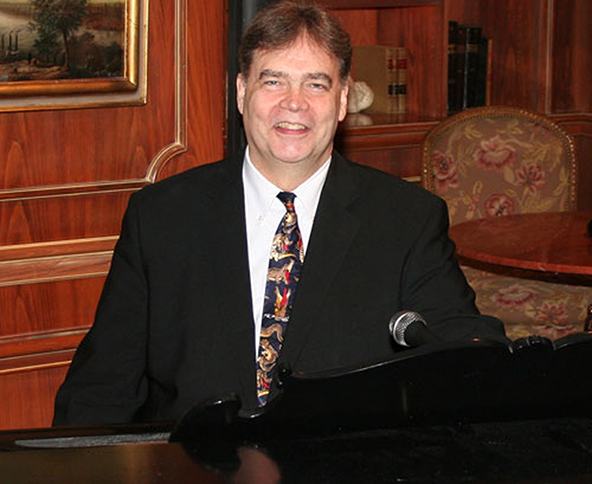
March 20, 2018:
The New Orleans Sound discussed and played by Armand St. Martin and his trio. Armand’s New Orleans family roots date back to Bienville and the founding of New Orleans, 300 years ago. His piano, singing performance style is similar to the late greats of “The New Orleans Sound,” musicians Professor Longhair, Fats Domino, and James Booker. Performing with his trio colleagues, Al Bernard and Bob Rotherham, Armand did a running commentary on the music as it is played.
Concert Six: Make a Joyful Noise
March 27, 2018
Our 2018 finale was sacred music of New Orleans,” featuring artist Valerie Francis with other singers doing American spirituals, and Craig Adams leading his music g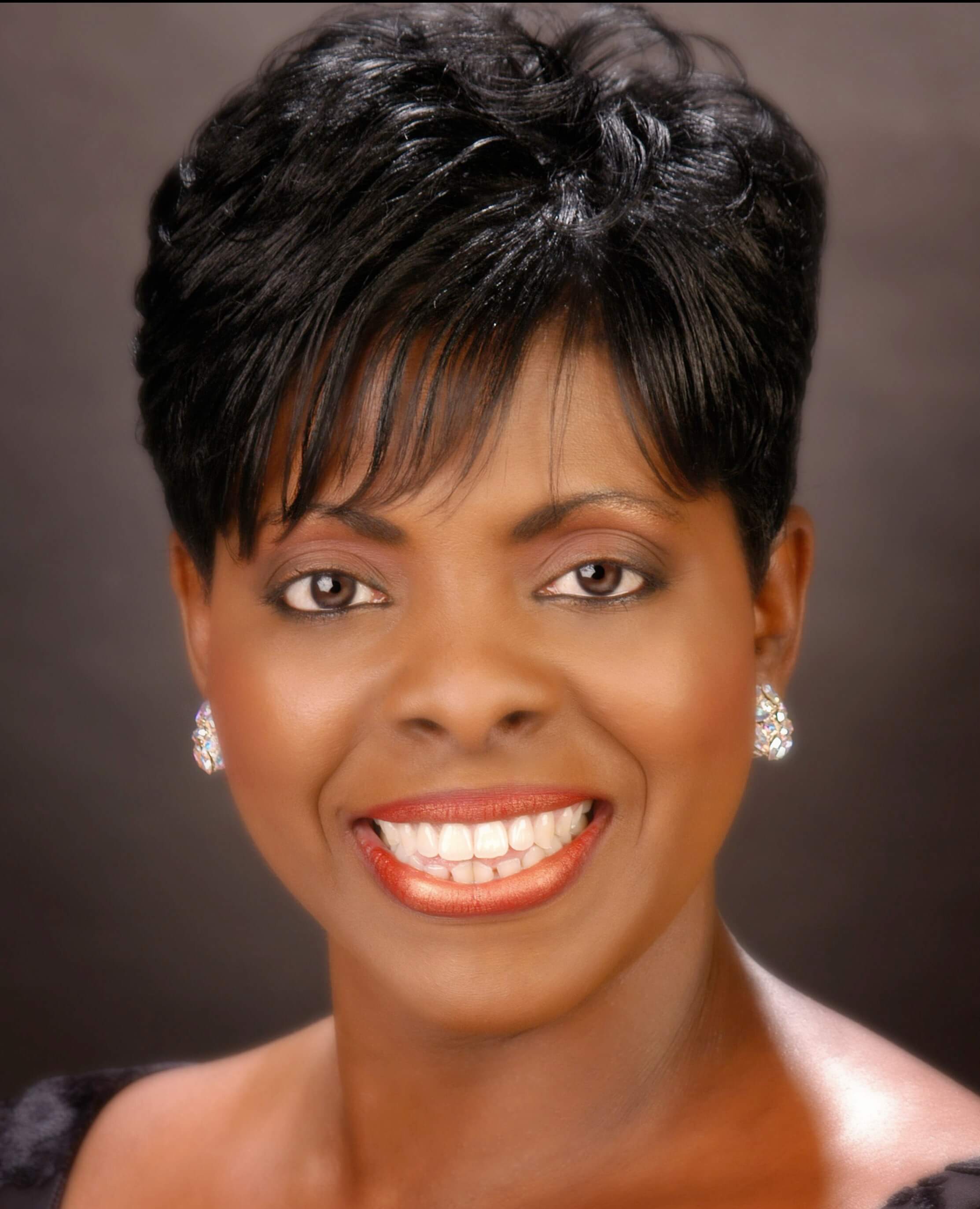 roup and
roup and 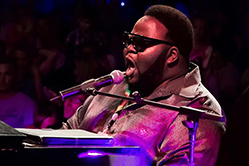 the singers in a rousing round of gospel as only New Orleans artists know how to raise a joyful noise to the lord!
the singers in a rousing round of gospel as only New Orleans artists know how to raise a joyful noise to the lord!
The program was introduced by Tulane University historian Dr. Emily Clark, whose remarks were a tribute to the famous Ursuline nuns, who are credited by most New Orleanians of a spiritual nature with the American victory over England at the Battle of New Orleans because of their prayer vigil in advance of and during the battle. Dr. Clark is among the many historian/authors included in the new 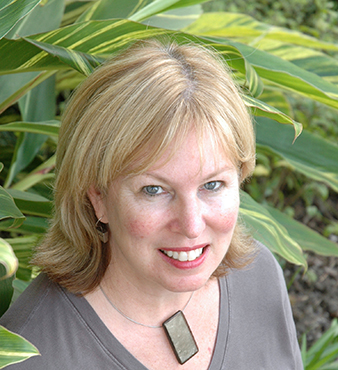 Tricentennial anthology published by Louisiana Endowment of the Humanities, New Orleans and the World: 1718 – 2018. She is the prize-winning author or editor of five books including Masterless Mistresses: The New Orleans Ursulines and the Development of a New World Society: 1727-1834 (2007), Voices from an Early American Convent (2007), The Strange History of the American Quadroon (2013) and the forthcoming New Orleans and Saint-Louis, Senegal: Mirror Cities in the Atlantic World. The Society offered copies of the tricentennial book for sale at the 2018 concerts.
Tricentennial anthology published by Louisiana Endowment of the Humanities, New Orleans and the World: 1718 – 2018. She is the prize-winning author or editor of five books including Masterless Mistresses: The New Orleans Ursulines and the Development of a New World Society: 1727-1834 (2007), Voices from an Early American Convent (2007), The Strange History of the American Quadroon (2013) and the forthcoming New Orleans and Saint-Louis, Senegal: Mirror Cities in the Atlantic World. The Society offered copies of the tricentennial book for sale at the 2018 concerts.
All concerts in the annual series take place at 6:30 p. m. at St. Mary’s Catholic Church, the beautiful chapel of the historic Ursuline Convent complex, 1100 Chartres Street.
The 2018 concerts were underwritten in part by a grant from the New Orleans Jazz & Heritage Festival and Foundation. Participation by the Jazz & Heritage Foundation and other underwriters make it possible for literary and musical presenters to be appropriately compensated.

Other Donors for the Series Included:
St. Louis King of France Cathedral – Basilica
The Archdiocese of New Orleans
Royal LMN, Inc. & Norbert Landry
French Quarter Realty & Michael Wilkinson
Sir Speedy New Orleans in memory of Billie Cox, Founding Partner
Carole & George Kulman
Rosemary James & Joseph DeSalvo: Faulkner House, Inc.
Angela M. Bowlin, Attorney
Frances & Rodney Smith: Soniat House
Marian Wallis & The Wallis Family
Henry Lambert & Carey Bond
Barbara Bowman
Mr. & Mrs. John Loeb
Barbara Holdsworth
Norma Sandoval